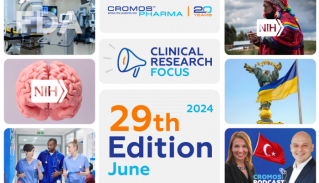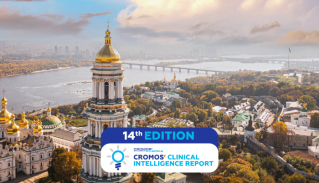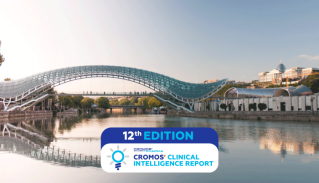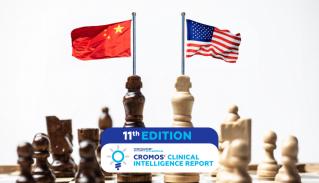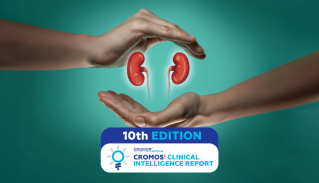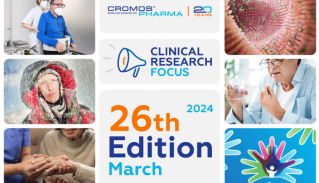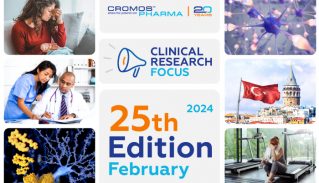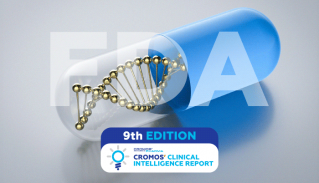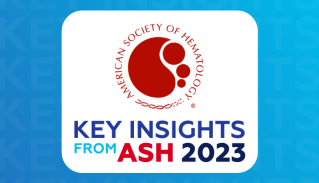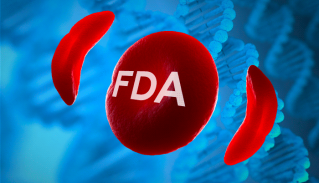
Clinical Research Focus. 10th Edition
Türkiye – a Hidden Gem in Clinical Research
Turkey, or Türkiye as it has been officially decreed by the UN, is the perfect location for conducting clinical research. Situated between Europe and Asia, Türkiye boasts a broad and diverse population of over 85 million. With a well-developed healthcare system, a relatively low per capita number of clinical trials, a large pool of treatment-naive patients, Türkiye is a hidden gem in clinical research. This is the reason why the number of biotech and pharma companies that are getting engaged in Türkiye has been on the rise and the volume of clinical trials has been doubling for the last 3 years.
Please read more about Clinical Trials in Türkiye here.
Myc Protein Inhibitor Shows Promise in Solid Cancer
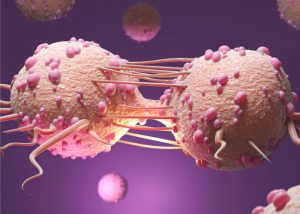 Cancer rates are declining on a global scale thanks to better detection and treatments but the pursuit to find effective treatments with novel mechanisms is ongoing. One of the new targets is Myc protein, which is believed to play a vital role in the development of most cancers. The results of a phase 1 trial of OMO-103, the first Myc inhibitor, were presented at the 34th EORTC-NCI-AACR Symposium on Molecular Targets and Cancer Therapeutics in Barcelona on October 28, 2022.
Cancer rates are declining on a global scale thanks to better detection and treatments but the pursuit to find effective treatments with novel mechanisms is ongoing. One of the new targets is Myc protein, which is believed to play a vital role in the development of most cancers. The results of a phase 1 trial of OMO-103, the first Myc inhibitor, were presented at the 34th EORTC-NCI-AACR Symposium on Molecular Targets and Cancer Therapeutics in Barcelona on October 28, 2022.
The trial included 22 patients with advanced solid tumor cancers including pancreatic, bowel, and non-small cell lung cancers who had previously been treated with different regimes. The participants received different doses of OMO-103 once a week by infusion. CT scans completed at week 3 showed significant responses in 8 patients. Of these patients, two had pancreatic cancer, three had colon cancer, one had non-small lung cancer, one had a form of sarcoma, and one had salivary gland cancer. OMO-103 was well tolerated and the side effects were mild. Further trials to evaluate drug efficacy in larger cohorts are now being planned.
Please read more about OMO-103 here.
Novel Leukemia Therapy Aims to Help Pediatric Patients
 Time is the enemy, especially for those with rapidly progressive and aggressive pediatric leukemia. A novel approach to CAR T (chimeric antigen receptor T cell) therapy aims to reduce that turnaround time significantly. Instead of reprogramming each patient’s cells, researchers are currently testing universal donor preprogrammed CAR T cells from other patients. 6 toddlers with B cell leukemia were treated with this approach and result are promising.
Time is the enemy, especially for those with rapidly progressive and aggressive pediatric leukemia. A novel approach to CAR T (chimeric antigen receptor T cell) therapy aims to reduce that turnaround time significantly. Instead of reprogramming each patient’s cells, researchers are currently testing universal donor preprogrammed CAR T cells from other patients. 6 toddlers with B cell leukemia were treated with this approach and result are promising.
To read more about the trial please click here.
Exploring New Targets and Biomarkers for Neurodegenerative Disorders
 Increased life expectancy is a welcome trend but it is associated with a rise in progressive neurodegenerative disorders. The rates of Alzheimer’s disease (AD), Parkinson’s disease (PD), Huntington’s disease (HD), and Amyotrophic lateral sclerosis (ALS) are rapidly increasing across the older population. Neurodegenerative disorders are recognized based on the association of abnormally conformed toxic proteins, such as tauopathies, α-synucleinopathies, TDP-43 proteinopathies, and FUS/FET proteinopathies, where the associated proteins are Tau, a-synuclein, TDP-43, and FUS/FET, respectively.
Increased life expectancy is a welcome trend but it is associated with a rise in progressive neurodegenerative disorders. The rates of Alzheimer’s disease (AD), Parkinson’s disease (PD), Huntington’s disease (HD), and Amyotrophic lateral sclerosis (ALS) are rapidly increasing across the older population. Neurodegenerative disorders are recognized based on the association of abnormally conformed toxic proteins, such as tauopathies, α-synucleinopathies, TDP-43 proteinopathies, and FUS/FET proteinopathies, where the associated proteins are Tau, a-synuclein, TDP-43, and FUS/FET, respectively.
In recent studies, researchers have proposed biomarkers and drug targets for TREM2, GFAP, MCP-1, MAPK1, VEGFR1, and FGFR1. This is especially important given the recent controversy around the amyloid beta protein and its now questionable significance.
For more information please click here.
The Science Behind Why Adults’ Hearts Don’t Regenerate
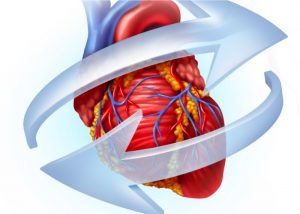 The human body’s complexity and resilience are not to be underestimated. While skin, bone, and other tissues in the human body can heal and repair themselves after injury, the heart lacks this ability. Utilizing animal studies, researchers have investigated how heart cells communicate, involving cellular signals. They found that the number of communication pathways decreases as heart cells mature in mice. It is estimated that this process may have evolved to protect the heart from internal and external stresses, but at the same time may also prevent the heart from having the ability to regenerate.
The human body’s complexity and resilience are not to be underestimated. While skin, bone, and other tissues in the human body can heal and repair themselves after injury, the heart lacks this ability. Utilizing animal studies, researchers have investigated how heart cells communicate, involving cellular signals. They found that the number of communication pathways decreases as heart cells mature in mice. It is estimated that this process may have evolved to protect the heart from internal and external stresses, but at the same time may also prevent the heart from having the ability to regenerate.
For more information please click here.
Breast Cancer: Advances in Chemotherapy Are Making Surgery Less Common
 It is a pivotal time for breast cancer research as recent advances are alleviating the need for mastectomy. In a recent study, researchers followed individuals diagnosed with breast cancer who were free of cancer after systemic therapy and did not undergo mastectomy. Researchers found they remained cancer-free 2 years after systemic therapy, which often involves chemotherapy. The researchers themselves have noted that further study is needed before these findings could affect clinical practice. “We will also need to see this reproduced with a larger study size,” Dr. Nye, head clinical researcher, said.
It is a pivotal time for breast cancer research as recent advances are alleviating the need for mastectomy. In a recent study, researchers followed individuals diagnosed with breast cancer who were free of cancer after systemic therapy and did not undergo mastectomy. Researchers found they remained cancer-free 2 years after systemic therapy, which often involves chemotherapy. The researchers themselves have noted that further study is needed before these findings could affect clinical practice. “We will also need to see this reproduced with a larger study size,” Dr. Nye, head clinical researcher, said.
For more information please click here.
World-First Brain Cancer Clinical Trial Platform Launched in Melbourne
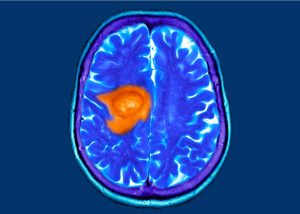 The world’s first Brain-POP (brain perioperative) clinical trial platform will enable doctors to see the effect of a new drug therapy on a patient’s brain cancer by comparing tumor samples before and after treatment. This exciting new technology is being led by The Brain Cancer Centre at The Royal Melbourne Hospital (RMH). The Australian government has dedicated $16 million in funding to support Brain-POP. The clinical trial program will deliver innovative, perioperative clinical trials with pediatric, adolescent, and adult patients that will help researchers to create a holistic picture of brain cancer treatment.
The world’s first Brain-POP (brain perioperative) clinical trial platform will enable doctors to see the effect of a new drug therapy on a patient’s brain cancer by comparing tumor samples before and after treatment. This exciting new technology is being led by The Brain Cancer Centre at The Royal Melbourne Hospital (RMH). The Australian government has dedicated $16 million in funding to support Brain-POP. The clinical trial program will deliver innovative, perioperative clinical trials with pediatric, adolescent, and adult patients that will help researchers to create a holistic picture of brain cancer treatment.
For more information please click here.
Blood pressure-lowering treatments significantly reduced dementia risk
 As countries become more economically developed and average lifespans increase, an unfortunate side effect is the rise in neurodegenerative diseases, such as dementia. Researchers have analyzed data from five randomized controlled trials evaluating the effects of antihypertensive medications on dementia. The research found that taking antihypertensive medications in mid-to-late life lowers dementia risk. The researchers also commented that future studies should investigate the cognitive effects of lowering blood pressure earlier in life, which in turn might have the possibility to limit the development of dementia even further later in life.
As countries become more economically developed and average lifespans increase, an unfortunate side effect is the rise in neurodegenerative diseases, such as dementia. Researchers have analyzed data from five randomized controlled trials evaluating the effects of antihypertensive medications on dementia. The research found that taking antihypertensive medications in mid-to-late life lowers dementia risk. The researchers also commented that future studies should investigate the cognitive effects of lowering blood pressure earlier in life, which in turn might have the possibility to limit the development of dementia even further later in life.
For more information, please click here.







